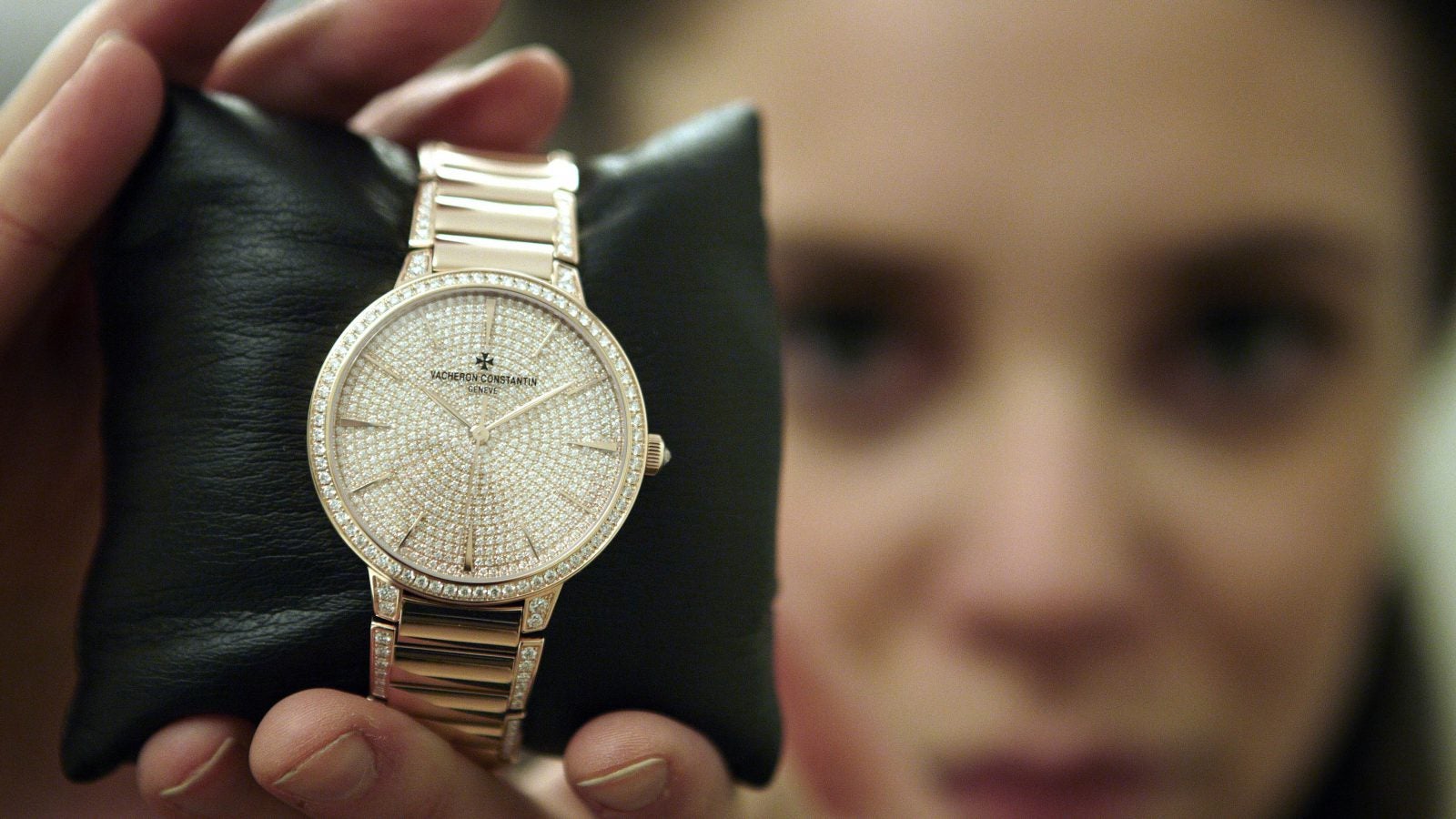When a big Swiss company eliminated the CEO position, its shares soared
What do CEOs do, really? This is about to become clear at Richemont, a Swiss luxury goods group that owns jewelry, watches, and clothing brands like Cartier, Chloé, and Montblanc. How so? The company announced today that when its CEO, Richard Lepeu, retires in March next year, he won’t be replaced.


What do CEOs do, really? This is about to become clear at Richemont, a Swiss luxury goods group that owns jewelry, watches, and clothing brands like Cartier, Chloé, and Montblanc. How so? The company announced today that when its CEO, Richard Lepeu, retires in March next year, he won’t be replaced.
The markets loved it. Or, at least, that’s one way to interpret the sharp spike in the company’s shares, given that it also announced a 43% plunge in its six-month profit, not normally a cause for celebration.
Instead of a group-level CEO, the heads of Richemont’s individual brands—internally called “maisons”—will report directly to the board of directors. The idea, the company says, is to streamline decision-making and allow the maisons to respond to ”dynamic” markets more quickly, specifically “the developing field of digital marketing and e-commerce,” the group said in a statement. (In 2010, the staid Swiss group bought a stake in online retailer YOOX Net-A-Porter.)
As for going without a CEO, chairman Johann Rupert said that “one individual cannot be held responsible, it’s unfair.” Richemont runs nearly 20 separate maisons, and the group generated revenue of around $12 billion in its latest fiscal year. That’s big, but not nearly as big as other multinationals that give their CEOs great power (and paychecks) to steer company strategy.
Judging the worth of a CEO is a fraught task, given how hard it is to measure one person’s impact on a sprawling global corporation. That said, one recent study found that listed-company CEOs, eager to boost the value of their stock options, have become more aggressive—and thus more influential—over a company’s direction. If Richemont’s removal of a (very important) management layer pays dividends, it will be noteworthy—it’s not full holacracy (letting employees make all of their own decisions), but it’s an interesting experiment in corporate governance.
The conglomerate is not as flush as it once was, like many luxury firms. The global luxury market saw just 1% growth in inflation-adjusted terms last year, weighed down by decreased tourism across Europe (in part based on fears of terrorism), instability in the Middle East, and a downturn in China, according to Bain & Company. Things aren’t looking up any time soon, the consultancy says.
Can a leaderless company cope? Interestingly, Richemont’s CFO Gary Saage is also retiring next year, but he will be replaced (and will no doubt be very busy).